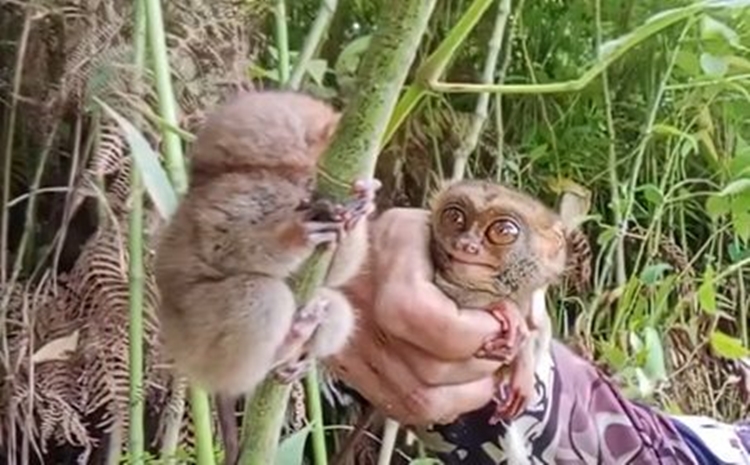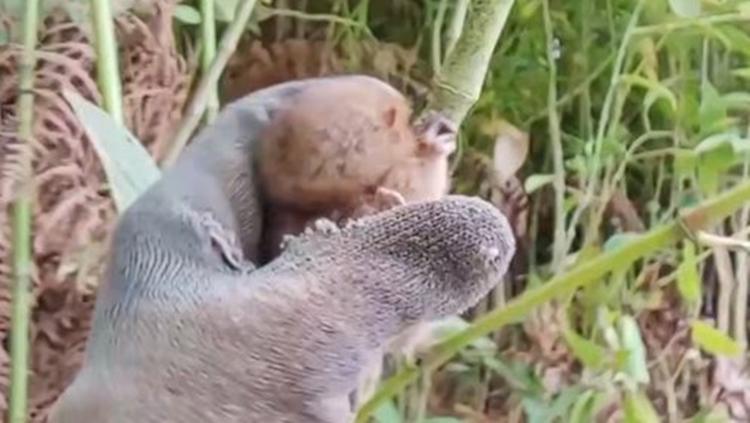Vlogger Airs Side on Handling and Playing with Tarsiers
TARSIERS – One of the vloggers who held and played with the primates in a viral video has expressed his side on the matter.
One of the vloggers said they found the tarsiers on the farm they were cleaning. He said they almost hit the primates with the bolo they were using. This prompted them to decide to relocate the animals.
They were able to find a new location for the tarsiers. They even recorded a video of how they transferred the animals. However, what they did received negative comments. The said vlogger apologized to those who criticized them if what he did was wrong. But for him, what they did was right because if they left the animals there, they wouldn’t have a safer space to live.

According to experts, tarsiers are highly sensitive, especially to things that cause them stress, including human touch, and there’s a possibility they could die if exposed to too much stress. Currently, they are considered “near threatened” or soon-to-be endangered species.

The Department of Environment and Natural Resources has initiated an investigation into the incident.
Meanwhile, a tarsier, a small primate active at night and native to Southeast Asia, is particularly found in the Philippines, Indonesia, and Malaysia. They are known for their notably large eyes in proportion to their body size. Tarsiers spend most of their time in trees and mainly eat insects.
Tarsiers face threats to their survival primarily because their habitats are being destroyed and divided by deforestation, expanding agriculture, and logging. Additionally, they are sometimes captured and sold illegally as pets, which further puts their populations at risk.
As a result, many tarsier species are considered in danger of dying out or becoming vulnerable, according to the International Union for Conservation of Nature (IUCN) Red List of Threatened Species. Efforts are underway to protect their homes and raise awareness about the importance of keeping these unique and vulnerable primates safe.
